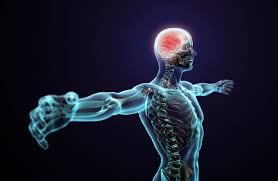

Omega-3 fatty acids are polyunsaturated fats responsible for most of the brain and mental health benefits of fish oil. Fish oil primarily contains two types of omega-3 fatty acids — EPA and DHA. These two fatty acids are components of cell membranes and have powerful anti-inflammatory functions within the body.
How Omega-3 Fish Oil Affects Your Brain and Mental Health
Fish oil is a popular over-the-counter supplement extracted from fatty fish like sardines, anchovies, mackerel and salmon.
Fish oil primarily contains two types of omega-3 fatty acids — eicosapentaenoic acid (EPA) and docosahexaenoic acid (DHA), which are well known for their heart health and skin benefits.
However, fish oil also has an incredible impact on the brain, especially when it comes to mild memory loss and depression.
This article reviews the research on how the omega-3 fatty acids in fish oil may affect your brain and mental health.
What Are Fish Oil Omega-3s?Omega-3 fatty acids are polyunsaturated fats responsible for most of the brain and mental health benefits of fish oil.
Fish oil primarily contains two types of omega-3 fatty acids — EPA and DHA.
These two fatty acids are components of cell membranes and have powerful anti-inflammatory functions within the body.
They are also well known for their critical roles in human development and heart health (1Trusted Source).
In the human diet, EPA and DHA are almost exclusively found in fatty fish and fish oil. Because most people do not consume the recommended amounts of fish, many people likely fall short of getting enough EPA and DHA in their diets (2Trusted Source).
The body can make EPA and DHA out of another omega-3 called alpha-linolenic acid (ALA). ALA is found in a number of food sources, such as walnuts, flaxseeds, chia seeds, canola oil, soybeans and soybean oil.
However, humans can’t convert ALA to EPA and DHA very efficiently, with estimates reporting that less than 10% of the amount of ALA you consume is converted to EPA or DHA (3Trusted Source).
Therefore, taking fish oil may be a good option, especially for those who don’t eat much fish but are still looking to gain some of the health benefits of omega-3 fatty acids.
How Do Omega-3s Affect the Brain?
The omega-3 fatty acids EPA and DHA are critical for normal brain function and development throughout all stages of life.
EPA and DHA seem to have important roles in the developing baby’s brain. In fact, several studies have correlated pregnant women’s fish intake or fish oil use with higher scores for their children on tests of intelligence and brain function in early childhood (4Trusted Source, 5Trusted Source).
These fatty acids are also vital for the maintenance of normal brain function throughout life. They are abundant in the cell membranes of brain cells, preserving cell membrane health and facilitating communication between brain cells (6Trusted Source).
When animals are fed diets without omega-3 fatty acids, the amount of DHA in their brains decreases, and they tend to experience deficits in learning and memory (7Trusted Source, 8Trusted Source).
In older adults, lower levels of DHA in the blood have been associated with smaller brain size, a sign of accelerated brain aging (9Trusted Source).
Clearly, it is important to make sure you get enough omega-3 fatty acids to avoid some of these detrimental effects on brain function and development.
Written by Keith Pearson, PhD, RD
on December 5, 2017
